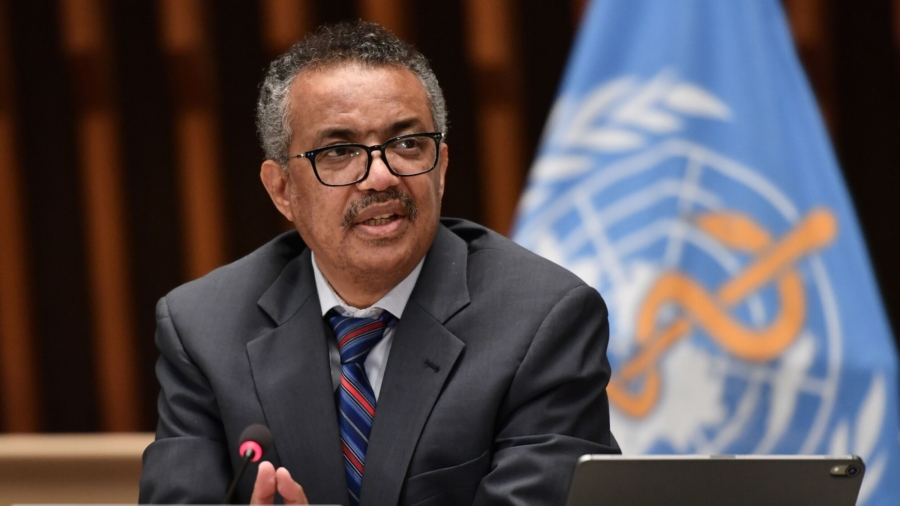The World Health Organization on Wednesday unveiled an updated plan for COVID-19 that, if implemented “rapidly and consistently” this year, will allow the world to end the emergency phase of the pandemic.
The plan—the WHO’s third on COVID-19—includes three potential scenarios for how the virus might evolve in the next 12 months: a base case, a best case, and a worst case. Key objectives include reducing COVID-19 infections, and effectively diagnosing and treating COVID-19 cases to reduce deaths.
WHO Director-General Tedros Adhanom Ghebreyesus said in the plan’s foreword that the world now stands at “a pivotal and dangerous moment in the fight against COVID-19.”
“Although it is impossible to predict precisely how the SARS-CoV-2 virus will evolve, we know that new variants will arise as transmission continues and, in many cases, intensify,” he wrote. “And yet, we can look to the future with a sense of hope that we can end the COVID-19 pandemic as a global emergency through our actions.”
The world now has “the tools to plan for and respond to every eventuality,” he said.
The director-general said during a press briefing that, based on current research, the most likely scenario is that the SARS-CoV-2 virus continues to evolve, but the severity of COVID-19 disease reduces over time as immunity increases due to vaccination and infection.
In the WHO’s base case planning scenario, which serves as the WHO’s working model, the virus continues to evolve, but causes less severe outbreaks due to sustained and sufficient immunity against severe disease and death. There will likely be periodic spikes in transmission as immunity wanes. Booster shots might be needed periodically for those most at risk. The virus would likely fall into a seasonal pattern, with peaks in colder months—similar to influenza.
The WHO’s best case scenario envisions future variants as being “significantly less severe,” while protection from severe disease would be maintained without the need for periodic boosting or significant changes to current vaccines.
The worst case scenario sees the emergence of a more virulent and highly transmissible variant against which vaccines are less effective, and/or immunity against severe disease and death wanes rapidly, particularly in the most vulnerable groups. This would require significant changes to current vaccines and full redeployment and/or broader boosting for those most at risk.
To help end the emergency phase of the pandemic, WHO called on countries to continue or increase their virus surveillance capabilities to allow for early warning signs of significant changes in the virus. It also called for improved detection of long COVID, to track and reduce long-term disability after the pandemic has ended.
Countries also must continue to do diagnostic testing for the novel coronavirus, which helps identify leading strains causing infections and guide community-level decision making. Countries also must track virus evolution within animal populations, according to the WHO.
“We have global systems to better understand the virus as it changes, and we have the vaccines, diagnostic tools, treatments, and other public health and social measures to end the acute phase of the COVID-19 pandemic,” the director-general said.
“Focus, vigilance, and commitment now will end the emergency of the pandemic and lay the foundations for a more effective response to the future threats that will undoubtedly emerge. But the pandemic remains far from over,” he added.
Reuters contributed to this report.
From The Epoch Times


